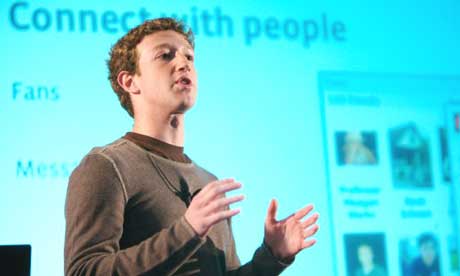Faced with a user revolt over changes to its terms of service, social networking site Facebook has decided to take the nuclear option: open itself up to public scrutiny.
In future, the site has announced, proposals to change its terms of service will be circulated to users in order to get feedback. Some may go to a public vote, while it also said that its legal contract with Facebook addicts will be simplified into a "bill of rights and responsibilities".
The document, said founder Mark Zuckerberg, is "not just what people must do when they're on the site… it's also what Facebook must do."
"We're going to notify everyone who wants to be notified and give them time to comment," he said in a call with journalists earlier.
In the case that a proposed change draws a high volume of response, "we'll even put it up for a vote".
The move comes just a few days after an embarrassing climbdown, after changes to the site's terms of use led to outrage among many of the site's 175m users. The concerns, over a shift in wording that appeared to give Facebook perpetual ownership to every piece of data on the site, eventually led to Zuckerberg making a drastic U-turn.
Although executives at the site said they did not intend to offend or annoy users with the earlier changes, they recognised that data ownership was a sensitive issue for many people.
Facebook's vice president of communications and public policy, Eliot Schrage, said: "Because of the nature of the information our users share, we have to hold ourselves to a higher standard."
Facebook has suffered from backlashes before – when implementing its news feed or its controversial Beacon advertising system, for example. But this latest change effectively hopes to stem future controversies in the bud by putting part of the company's up for public approval (although Facebook will, of course, still control which issues are up for public discussion and vote)
Zuckerberg, who seemed stuck for words on a few occasions, said that although the announcement was precipitated by last week's farce, the changes had been discussed for a "long time".

Comments (…)
Sign in or create your Guardian account to join the discussion